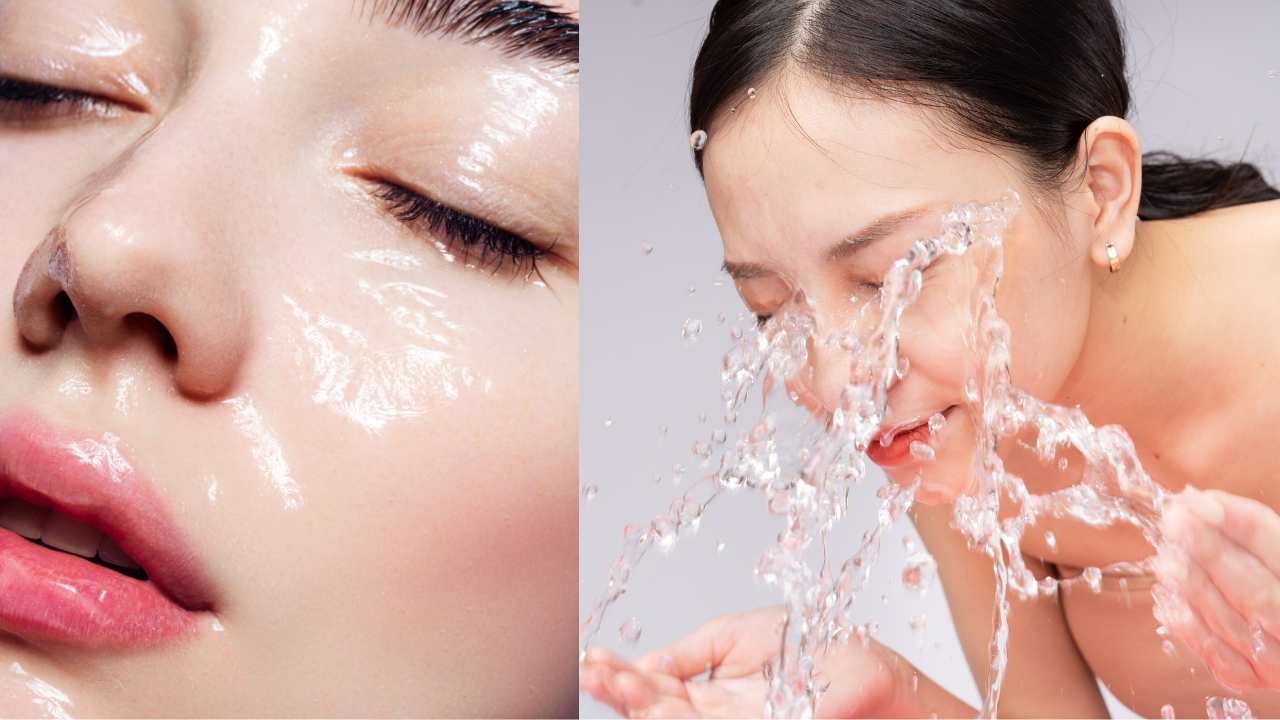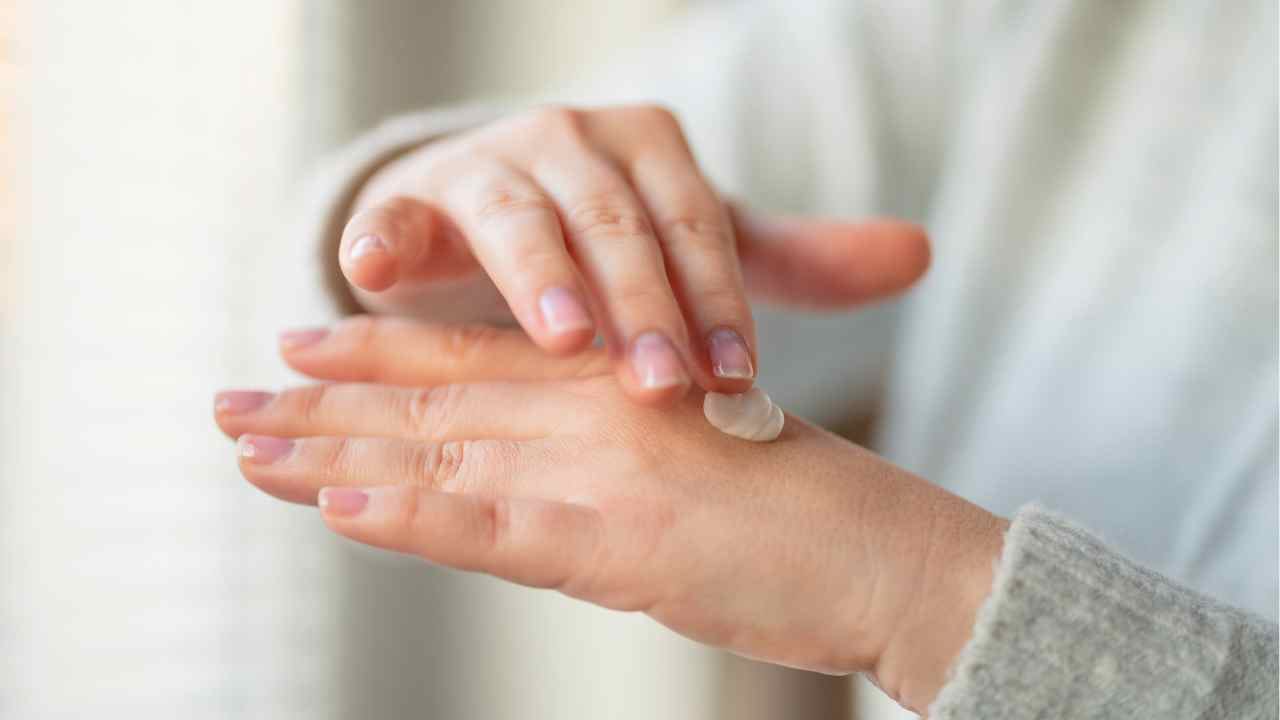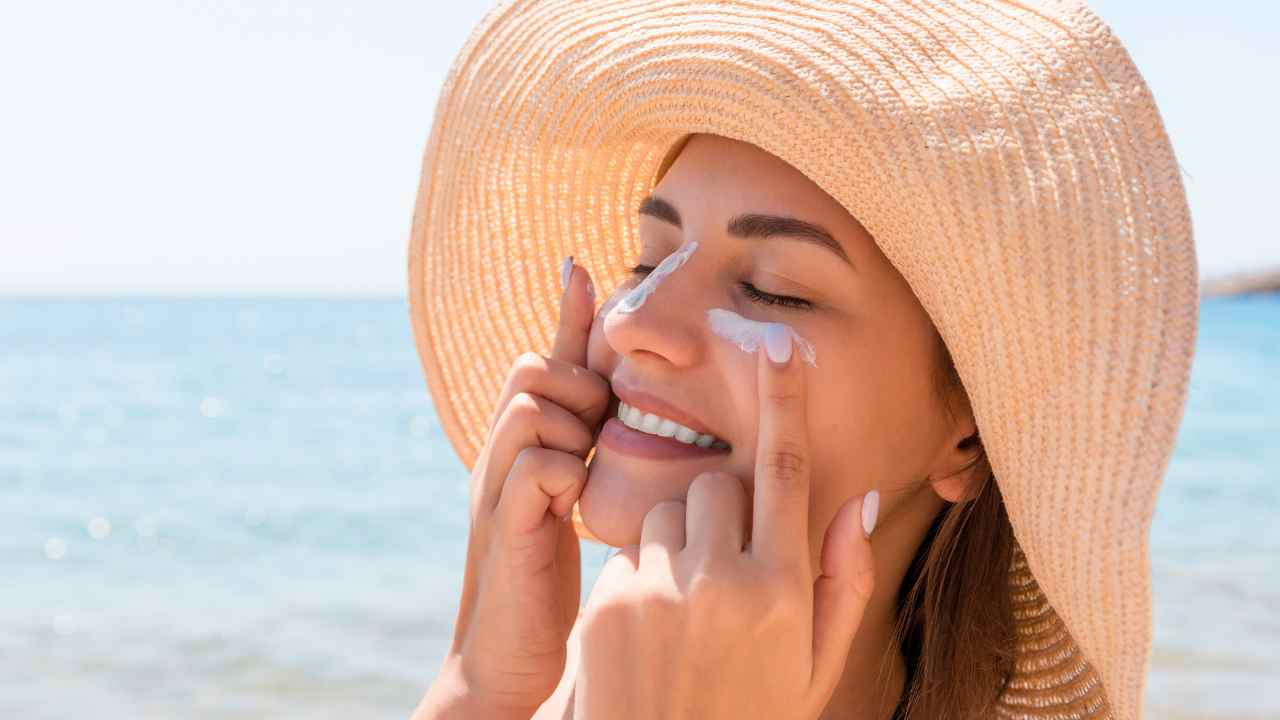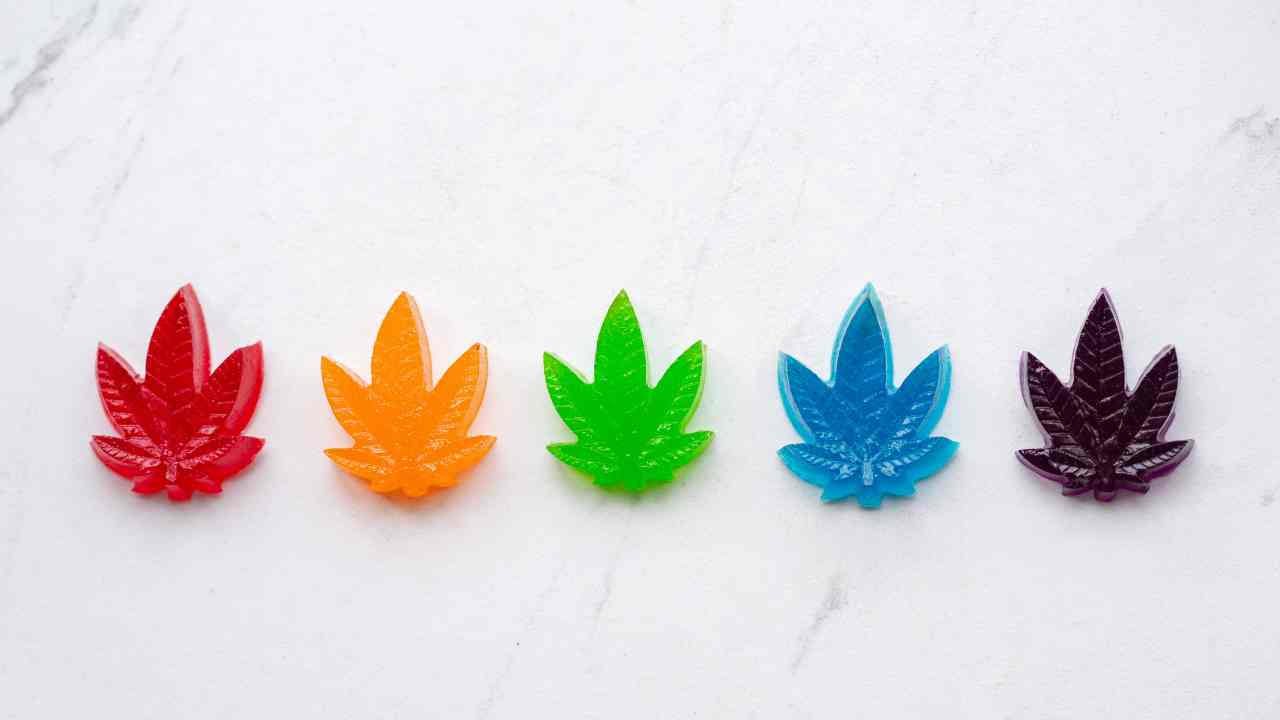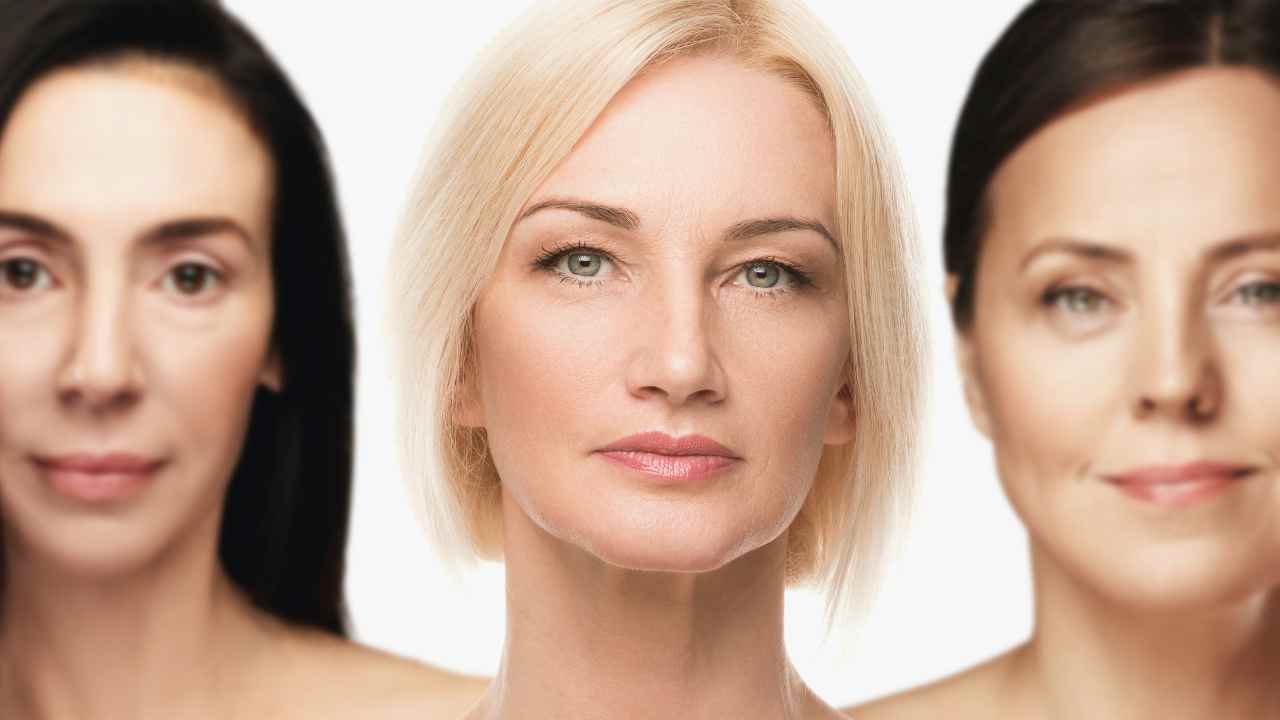
Clearing the Air: Does Nicotine Cause Acne?
If you're like most people, you probably heard at some point in your life that nicotine causes acne. It's a rumor that seems to circulate endlessly and keeps coming back up despite repeated attempts to debunk it.
But why is this belief so persistent? Is there any truth to it or is it just one of those pesky urban myths? Over the course of this blog post, I'll be diving deep into all sides of the debate and sorting through what's real and what's simply an old wives' tale.
So settle down, grab your favorite cup of coffee, and get ready for a wild ride as we try to clear the air on whether nicotine complexion problems are true or false.
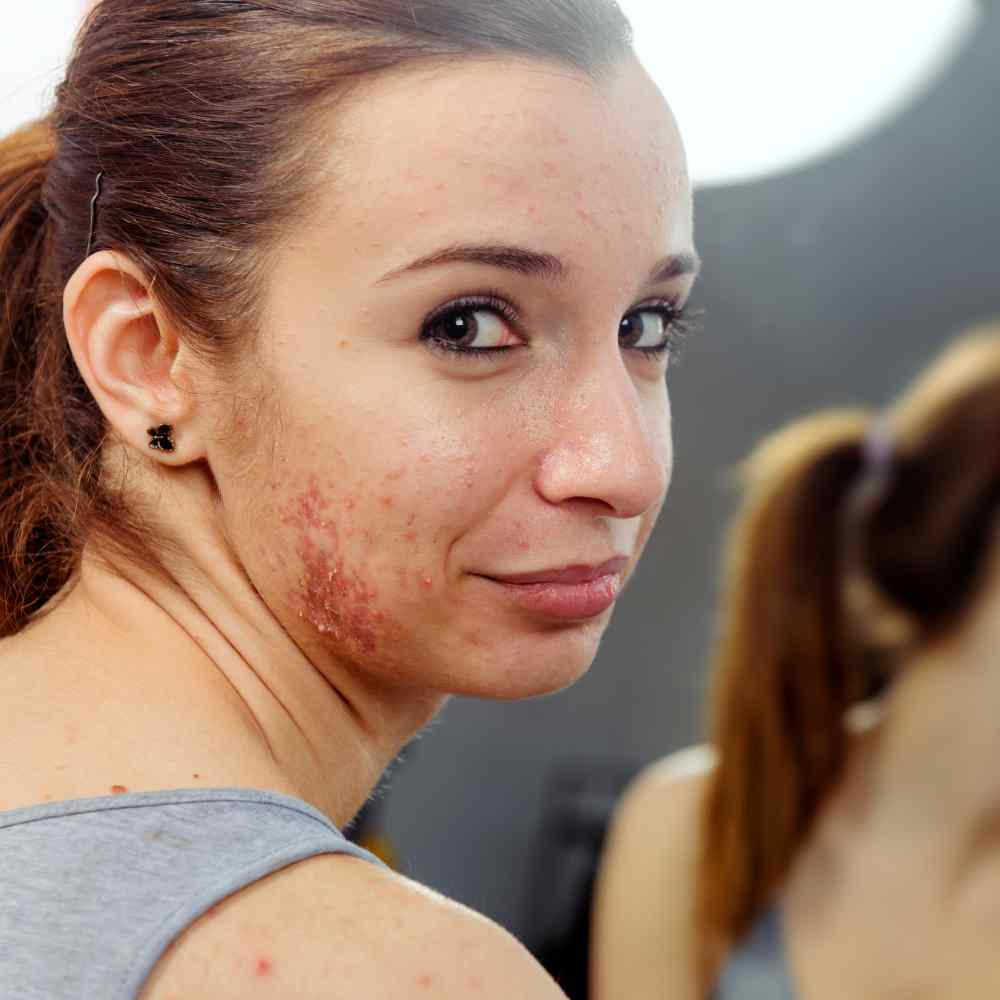
Understanding Your Acne
Before exploring the alleged connection between nicotine and acne, it is essential to comprehend the nature of acne itself.
Acne is a skin condition marked by pimples, blackheads, whiteheads, and other forms of inflamed or infected skin lesions that develop when your pores become clogged with dead skin cells, oil and bacteria. It's super common - in fact, it affects up to 50 million Americans each year!
The good news is that acne isn't dangerous; however, it can cause serious emotional distress and low self-esteem if left untreated. Even worse, it can cause acne scarring. And acne scars can take time, patience and special care to heal.
The exact cause of acne isn’t fully understood yet; however there are some factors that contribute like genetics, hormones and environmental factors. Some people develop atypical post adolescent acne and wonder why. Smoking cigarettes could be a contributor.
There are many treatments for acne including pore cleansers, masks and ingredients such as salicylic acid, benzoyl peroxide and tretinoin. Your dermatologist can help you find the best path for acne treatment.
What Does Nicotine Do to Your Body?
Ah, nicotine! It's one of those substances that everyone knows a bit about - but if you dive deeper, the details get more and more interesting. Let's explore what exactly this substance does in our bodies.
First off, it's important to know that nicotine is an alkaloid found in tobacco as well as some other plants like potatoes.
In its pure form, it's a liquid and highly-addictive stimulant drug – which means it revs up our central nervous system. When you consume nicotine (usually through smoking or vaping), its effects are felt almost instantly and can last anywhere from 1 to 8 hours depending on how much was taken in.
At first, people who use nicotine feel very alert and energized – but over time can become dependent on needing larger doses to achieve the same effect.
This is why reducing consumption looks different for everyone: even small decreases in dosage can lead to withdrawal symptoms like headaches, irritability, anger/anxiety/depression, or simply feeling tired all the time.
Nicotine comes with many health risks. It affects blood pressure by constricting blood vessels. This increases your risks of heart disease like high blood pressure or stroke down the line if used frequently enough.
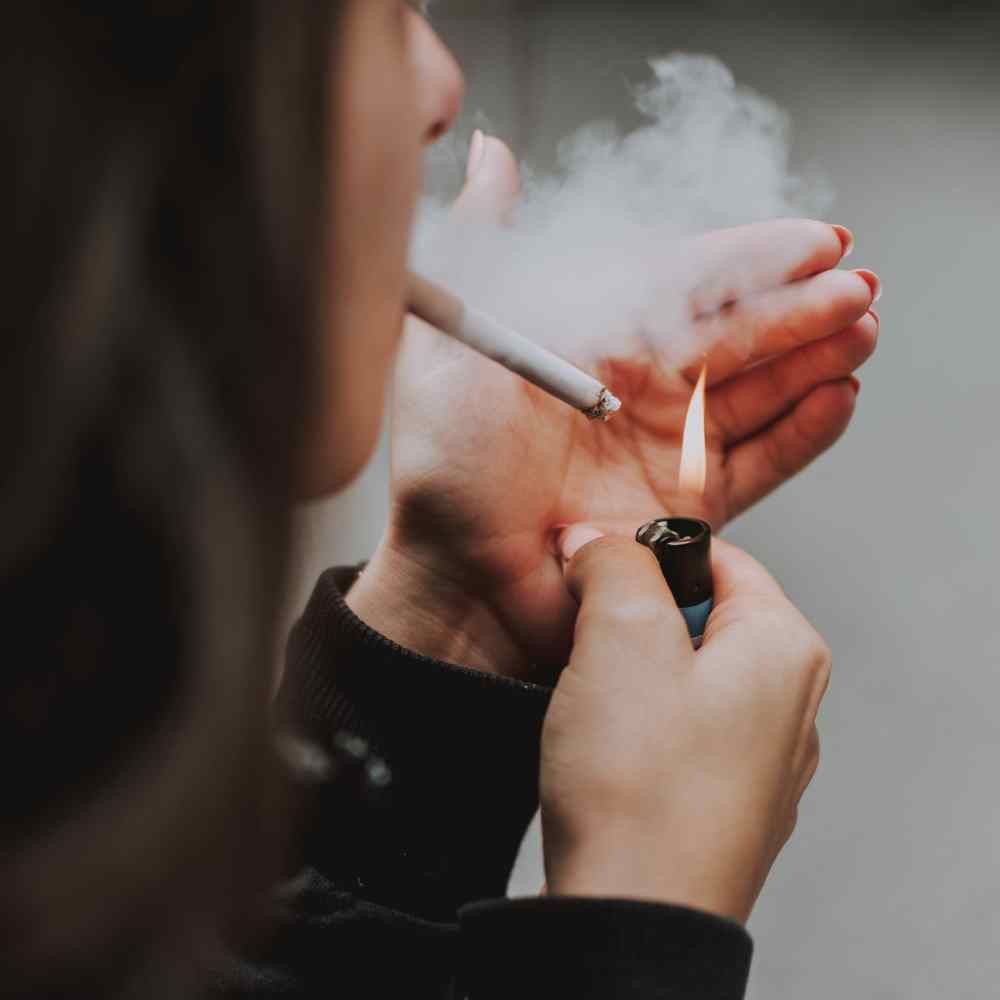
Does Nicotine Cause Acne?
The truth is, there isn't a definitive answer to this one; however, the data indicates that nicotine does influence acne in some cases.
To begin with, let’s take a look at what we know about the effects of tobacco and nicotine on our bodies. We know that cigarette smoking has been linked to numerous health issues including increased risk of heart disease and cancer.
And while nicotine might not directly cause these conditions itself, it can certainly contribute to their development by weakening your immune system and impairing your body's ability to repair damaged cells or fight off infections which could lead to disease or poor skin quality.
But when it comes down to whether or not nicotine causes acne specifically, things get tricky because there just hasn't been enough research done in this area yet—which means there is no scientific consensus on how exactly smoking or vaping nicotine impacts skin health.
Some studies have suggested that long-term smokers may experience more severe forms of acne due to decreased blood flow in the skin tissues caused by inhaling cigarette smoke while other studies have indicated that certain components found within cigarettes (such as tar) can clog pores which can lead to congestion around the nose or chin area making them prone breakouts and blackheads.
However, none of this information has been backed up with sufficient evidence yet so until further research takes place we just don’t know for sure if nicotine causes acne or not!
That being said though there are still some individuals who swear they've seen improvements in their own skin since quitting their smoking habit. So, if you're struggling with any sort of persistent blemishes or serious inflammatory acne then perhaps taking a break from cigarettes could help you too!
Nicotine & Hormones
While nicotine itself may not directly cause acne, it can indirectly affect the skin by influencing hormone levels.
Nicotine stimulates the adrenal glands, leading to the release of stress hormones like cortisol and adrenaline.
These hormones, in turn, can contribute to the development or exacerbation of acne by increasing oil production, clogging pores, and promoting inflammation.
Additionally, nicotine can impact insulin sensitivity and disrupt the balance of androgen hormones, which play a role in acne formation.
Elevated levels of androgens can stimulate the sebaceous glands, leading to increased oil production and a higher likelihood of acne breakouts.
However, it is important to note that these hormonal effects of nicotine are not exclusive to acne and can affect various other aspects of health.
Quitting Smoking and Improving Skin Health
Considering the detrimental effects of smoking on the skin, quitting smoking is highly advisable not only for general health but also for skin health.
By quitting smoking, individuals can reduce the exposure to harmful chemicals, improve blood circulation, and restore collagen and elastin production, leading to a healthier complexion while preventing premature facial wrinkling. Not to mention, you will reduce your risk for cancers, including skin cancer.
Here are even more skin benefits of quitting smoking on your health, according to Nicole Smith, an aesthetic physician assistant in Los Angeles, California.
@lipsandlattes Smoking and vaping both have nicotine and other harmful chemicals that damage the skin. This is no anti-aging secret, but If you are in your 20’s and vape these tips are for you! And if you are in your 30’s and 40’s and truly care about skincare and aging gracefully is your goal, and you vape… You are accelerating the aging process! #vapetok #vaping #smokerlines #nicotine #antiaging #skintiktok #skincaretips #womenintheir20s #womenover40 #smoking
♬ original sound - Nicole Smith Cosmetic Injector
@lipsandlattes
The Truth About Nicotine and Acne
While nicotine itself does not directly cause acne, smoking and its numerous harmful components can exacerbate existing skin conditions like dry skin and acne and contribute to the development of acne rosacea.
Nicotine's influence on hormones and the subsequent effects on oil production and inflammation may indirectly contribute to acne formation.
However, it is crucial to differentiate between nicotine and smoking as a whole when discussing their impact on the skin.
Maintaining a healthy and clear complexion involves a holistic approach, including proper skincare, a balanced diet, stress management, and avoiding smoking.
By understanding the complexities of acne and its potential triggers, individuals can make informed decisions about their lifestyle choices and take steps towards achieving healthier skin.



